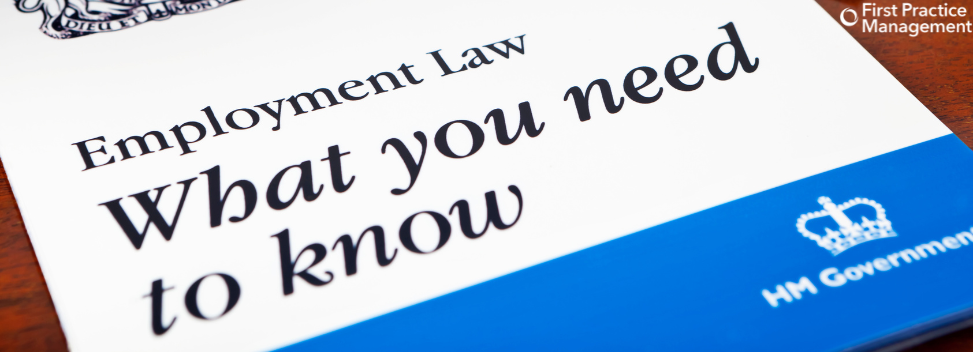
Usually at this time of year, the government announces new and upcoming changes to Employment Law that we all need to be aware of when managing our practices. Senior HR Business Partner Sam Rigby explains what you need to know.
This year however, has been a little different. We have had the usual changes to statutory pay rates:
- National Living Wage (For employees over 21): £12.21
- Increase to SSP, from £116.75 per week to £118.75 per week
- Family Friendly leave (Maternity, Paternity, Adoption, Shared Parental Leave etc) The weekly rate has increased from £184.03 to £187.18.
And of course, we have had the increases to Employers Contributions for National Insurance.
Neonatal Care Leave
From the 6th April, parents of babies that were born on or after this date, that have been born early or sick, may be able to get paid leave to look after and spend time with their new baby. “Neonatal Care” is the term used for care to new-born babies given up to 28 days after their birth. This therefore covers babies that are born early, but also that are born unwell and includes both care in the hospital and at home. Parents can get one week’s leave for every 7 full days that the baby is in care, up to a total of 12 weeks. If the parents are already on family leave, such as maternity leave, the Neonatal Care Leave can be added on to the end of the Family Leave.
- The leave must be taken within 68 weeks of the baby being born (16 months).
- Neonatal Care Leave pay is £187.18 per week
- Similarly to statutory maternity pay, for Neonatal Care Leave, employees are entitled to the leave from their first date of employment, but for pay, must have been employed for 26 weeks.
- For more information, please view our Maternity Policy on our FPM Core database.
Employment Rights Bill
There are significant changes coming when the Employment Rights Bill (ERB) comes into law. Although not yet law, the changes are expected to come into force in Autumn 2026. The ERB is Labour’s approach to strengthen and modernise working practices within the UK.
The Employment Rights Bill was published in October 2024. Amendments to that Bill have since worked their way through Parliament, the most recent changes being announced last month.
Some of the original changes reported last year were changes to the famous “two year” safety net, which many managers utilise to make more risky decisions, knowing that employees currently cannot claim Unfair Dismissal until they have been employed for two years. The current proposal is to make this a day one right, changing Probation Periods and Employers approaches. More on this will be reported closer to the time.
One of the recent amendments, that further changes the working landscape, will be changing “Fire and Rehire” dismissals, to being automatically unfair. Employers might think that’s fine, as most have never actually “Fired and Rehired” any employees.
But what may not be understood, is that Fire and Rehire is the process most employers use when changing Contractual Terms and Conditions. The consultation process often doesn’t get to the final stages where employees are “Fired and Rehired”, but many Practice Managers will be well versed in how to consult with employees to make changes to Terms and Conditions - such as, for example, changing working hours, days, shifts etc. This essentially means that changing contractual terms and conditions may become automatically unfair, meaning that for example, Practices may need to review contracts to ensure variation clauses are specific enough to rely on, to allow some changes to be made without following the current “Consultation” process.
We still don’t have the full details on all the changes being made by the Bill, or when they will come into law, but it is worth being aware that significant changes are coming.
FPM will continue to monitor the situation and ensure that you have all the detail you need to ensure that the Practice is prepared and protected.


0 Comments